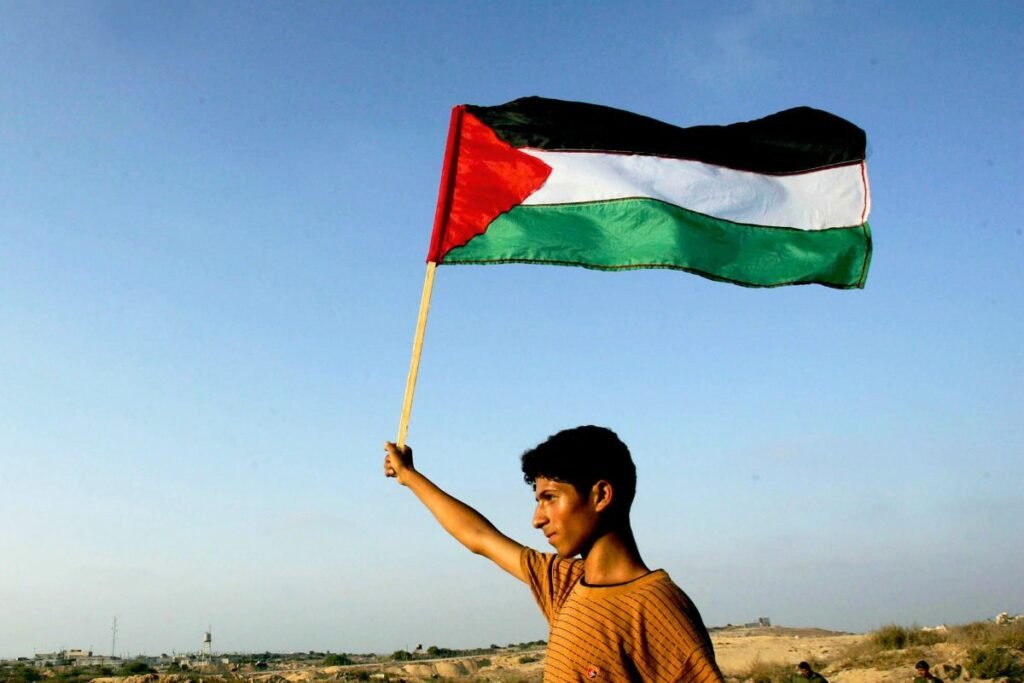As of May 2025, the United Kingdom’s position on the Gaza conflict has undergone significant shifts, reflecting a complex interplay of humanitarian concerns, political pressures, and international diplomacy. The UK’s approach has moved from cautious neutrality to a more assertive stance, advocating for ceasefires, humanitarian aid, and the recognition of Palestinian statehood.
Humanitarian Advocacy and Ceasefire Calls
The UK government has been vocal about the dire humanitarian situation in Gaza. Foreign Office Minister Hamish Falconer condemned Israel’s blockade of aid, highlighting that “tonnes of food are currently sitting rotting at the Gaza/Israel border, blocked from reaching people who are starving.” Prime Minister Keir Starmer, alongside leaders from France and Canada, expressed horror at the escalating violence and civilian casualties, particularly among children, and reiterated calls for a ceasefire.
In Parliament, discussions emphasized the need for Israel to allow essential items such as tents, mattresses, and medical equipment into Gaza. The UK has also stressed the importance of opening routes for medical evacuations and supporting the rebuilding of basic services.
Diplomatic Tensions with Israel
The UK’s stance has led to diplomatic friction with Israel. Israeli Prime Minister Benjamin Netanyahu accused the UK, along with France and Canada, of “emboldening Hamas” by calling for a ceasefire and increased humanitarian aid. Netanyahu argued that such international demands undermine Israel’s efforts to dismantle Hamas.
In response, UK officials refuted these accusations, emphasizing their condemnation of antisemitism and support for Israel’s right to self-defense within the bounds of international law. The UK government has also imposed sanctions on Israel due to its military escalation in Gaza, marking one of the firmest responses since the conflict intensified.
Support for Palestinian Statehood

Within the UK, there is growing momentum to recognize Palestinian statehood. Labour Party figures, including MPs and peers, are urging the government to take this step at an upcoming UN conference on the two-state solution. They argue that recognition would empower Palestinians in peace negotiations and counter Israel’s ongoing occupation.
While Foreign Secretary David Lammy has engaged in discussions with France regarding this matter, he remains cautious about taking symbolic actions without tangible outcomes. Nonetheless, the push for recognition aligns with the UK’s broader commitment to a two-state solution.
Military and Humanitarian Actions
The UK has deployed military assets to promote de-escalation, including drone surveillance of Gaza for hostage rescue purposes. Importantly, the government states it has not provided “lethal or military equipment” to Israel since October 7, 2023.Parliamentary discussions have highlighted the need for increased supplies of tents, mattresses, and medical equipment in Gaza. The UK government has also opposed proposals that would forcibly relocate Palestinians from Gaza, emphasizing the importance of voluntary return and resettlement.
Public Sentiment and Activism
Public response in the UK has been powerful and widespread. Since the escalation of the Gaza crisis, there have been regular protests across major cities—London, Manchester, Birmingham, Glasgow—where thousands have gathered to demand a ceasefire, an end to the blockade, and recognition of Palestinian rights.
Activist groups such as Stop the War Coalition, Amnesty International UK, and various pro-Palestine organizations have mobilized grassroots campaigns. Social media has played a crucial role in shaping narratives, with viral videos, photojournalism, and firsthand accounts drawing empathy and outrage from British citizens.
This growing public pressure has influenced the political climate, encouraging more MPs to speak out. Many argue that the UK’s foreign policy must reflect the values of its citizens—especially when there is overwhelming concern about human suffering in Gaza.
At the same time, there have also been pro-Israel rallies and public statements defending Israel’s actions against what they label as Hamas-led terror threats. The UK’s Jewish community has expressed both grief over the conflict and concern over rising antisemitic incidents reported during this period. The UK government has repeatedly stressed the need to maintain civility in discourse and to distinguish between criticism of a state and prejudice against a people.
Media Coverage and the Information War
British media coverage has varied greatly across outlets, reflecting ideological lines. Left-leaning publications like The Guardian and The Independent have focused on the humanitarian toll in Gaza, often publishing eyewitness accounts, interviews with aid workers, and opinion pieces urging immediate ceasefire.
In contrast, conservative-leaning platforms like The Telegraph and Daily Mail have highlighted security threats posed by Hamas, the complexity of Israeli defense operations, and the risks of aligning too closely with anti-Israel rhetoric. Meanwhile, broadcasters such as BBC and Sky News have attempted to strike a balance but have faced criticism from both sides for alleged bias.
The polarized media environment has made it harder for the general public to form a unified perspective. The influence of social media—particularly platforms like X (formerly Twitter), Instagram, and TikTok—has amplified graphic content and emotionally charged narratives, further fueling public debate.
Impact on UK’s International Standing

The UK’s stance on Gaza is also shaping its reputation on the international stage. While France, Canada, Ireland, and Spain have voiced similar concerns, the UK’s diplomatic balancing act—calling for humanitarian relief while maintaining strategic partnerships—is being closely watched.
Many in the international community have praised the UK’s push for a ceasefire and increased aid access. However, some human rights organizations argue that Britain must go further, particularly by reviewing arms sales and applying international legal mechanisms to hold violators accountable.
The government’s response is part of a broader shift in foreign policy. Post-Brexit, the UK has emphasized “Global Britain” as a doctrine of ethical diplomacy. Its actions in Gaza are being scrutinized as a test of whether that philosophy translates into meaningful action or remains rhetorical.
Conclusion
The UK’s stance on Gaza in 2025 reflects a nuanced approach that balances humanitarian concerns, support for international law, and diplomatic relations. While advocating for ceasefires and increased aid, the UK also navigates complex political dynamics, including tensions with Israel and internal debates on recognizing Palestinian statehood. As the situation evolves, the UK’s policies continue to adapt, aiming to contribute to a peaceful and just resolution to the conflict.



